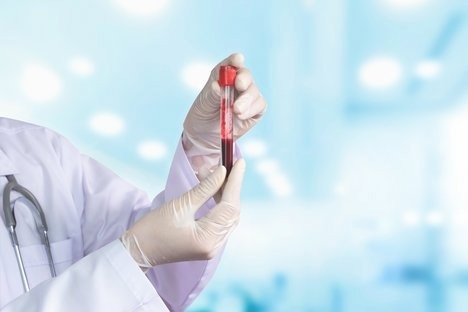A MedUni Vienna research group identified a particularly potent biomarker for clinical response to CAR-T cell therapy, establishing the conditions for the most effective use of this innovative therapy for lymphoma treatment. The recent findings are an important step in improving this potential therapy. The study’s findings were published in the prestigious journal Frontiers in Immunology.

Image Credit: Medical University Vienna
Diffuse large B cell lymphoma (DLBCL) is the most prevalent type of lymphoma (non-Hodgkin’s lymphoma). The current five-year survival rates range from 55% to 64%. Patients with early relapse of the disease or who do not react to combined antibody chemotherapy, on the other hand, have an even poorer prognosis.
CAR-T cells have been developed as a new, highly effective kind of therapy for people affected in recent years. For this therapy, the patient's own lymphocytes are harvested, grown, and reintroduced to him or her with chimeric T cell receptors (CAR = chimeric antigen receptor) specific for lymphatic cancer cells.
Because of the expression of the chimeric T cell receptors, T cells are transformed into killer cells, and in the best situation, the lymphatic cancer cells in the patient’s body are eradicated forever. Although this therapy can be very beneficial when CAR-T cells respond to lymphoma cells and allows for long-term survival, it does not work for all individuals.
The researchers started their clinical research at the origin of CAR-T cell production: the characteristics of the patient’s own T lymphocytes (T cells). During the process, they observed that patients with lymphoma frequently have a lack of T lymphocytes (T cell lymphopenia).
Because lymphopenia is frequently associated with an increase in “exhausted” T cells, this research started by counting the quantity of these cells. Exhausted T cells were discovered to be considerably higher in a subset of individuals. Such fatigued T cells are often identified only in patients with chronic inflammation.
With these findings, the investigators guided by Nina Worel (Transfusion Medicine) and Ulrich Jäger (Hematology), in partnership with Winfried Pickl’s team (Institute of Immunology), established the foundation for categorizing patients as having a high or low likelihood of responding to CAR-T cell therapy.
Our study shows how important the nature of the T cells is for CAR-T cell production and that exhausted T cells, which can be found in a considerable proportion of patients, pose a problem for subsequent CAR-T cell therapy.”
Winfried Pickl, Study Leader, Institute of Immunology, Medical University of Vienna
Winfried Pickl adds, “Our observations of the mode of action of the differently exhausted T cells, which were used as starting material for the production of CAR-T cells, show that the degree of differentiation does not have a negative influence on the direct killing of cancer cells by CAR-T cells, but it does have a negative influence on the leukemia cell-dependent growth and the factor production of the CAR-T cells.”
This suggests that exhausted CD27negCD28neg-CAR-T cells may not be able to persist for longer periods of time in patients, which may limit their long-term efficacy.”
Winfried Pickl, Study Leader, Institute of Immunology, Medical University of Vienna
The selection of T cells could provide a decisive advantage
The low frequency of differentiated (exhausted) CD3posCD27negCD28neg-T cells at the time of leukapheresis represents a new blood biomarker that can be used even before the start of CAR-T cell production and infusion and predicts the response to treatment with CAR-T cells in patients. Removal of such cells from the leukapheresis product prior to the initiation of CAR-T cell production could significantly improve the success of therapy even in patients with an unfavorable initial situation.”
Winfried Pickl, Study Leader, Institute of Immunology, Medical University of Vienna
Source:
Journal reference:
Worel, N., et al. (2023) The frequency of differentiated CD3+CD27-CD28-T cells predicts response to CART cell therapy in diffuse large B-cell lymphoma. Frontiers in Immunology. doi.org/10.3389/fimmu.2022.1004703.